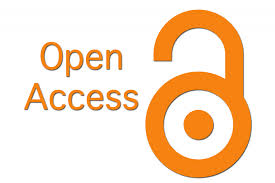DEVELOPMENT OF TUNA FISHERIES MANAGEMENT STRATEGIES FOR THE SOUTHERN COAST OF JAVA: AN APPLICATION OF INTERPRETATIVE STRUCTURAL MODELING
Abstract
Territorial waters of South Java is part of fisheries management zone of Indian Ocean Fisheries, has a potential tuna fish resources. The purpose of this research was to formulate strategy for the efficacy of model implementation of tuna fisheries development in South Coast of Java. Interpretative structural modeling technique was used the study. The method was considered a technique of strategic planning of which describes comprehensively condition of the system. Result showed that there were seven element of system require for succeeding implementation of model. The seven element of system and their key element are affected society sector, tuna entrepreneur, required factor, the availability of tuna resources and the availability of data and information, the main constraint of program development, high gasoline price, limited of financial capital and low priority of development fund, the main purpose of program: exploiting optimization of tuna resources; the indicator of the
efficacy program: increasing the earn of tuna fishery and improvement of labor absorption; the activity needed to execute the program: making plan work activity; and institution in concerned for the efficacy program: Ministry of Marine Affairs and Fisheries.
efficacy program: increasing the earn of tuna fishery and improvement of labor absorption; the activity needed to execute the program: making plan work activity; and institution in concerned for the efficacy program: Ministry of Marine Affairs and Fisheries.
Keywords
fisheries management; interpretative structural modeling; tuna; South Coast of Java
Full Text:
PDFDOI: http://dx.doi.org/10.15578/ifrj.17.2.2011.101-110

Indonesian Fisheries Research Journal is licensed under a Creative Commons Attribution-ShareAlike 4.0 International License.
View My Stats
p-ISSN 0853-8980
e-ISSN 2502-6569




